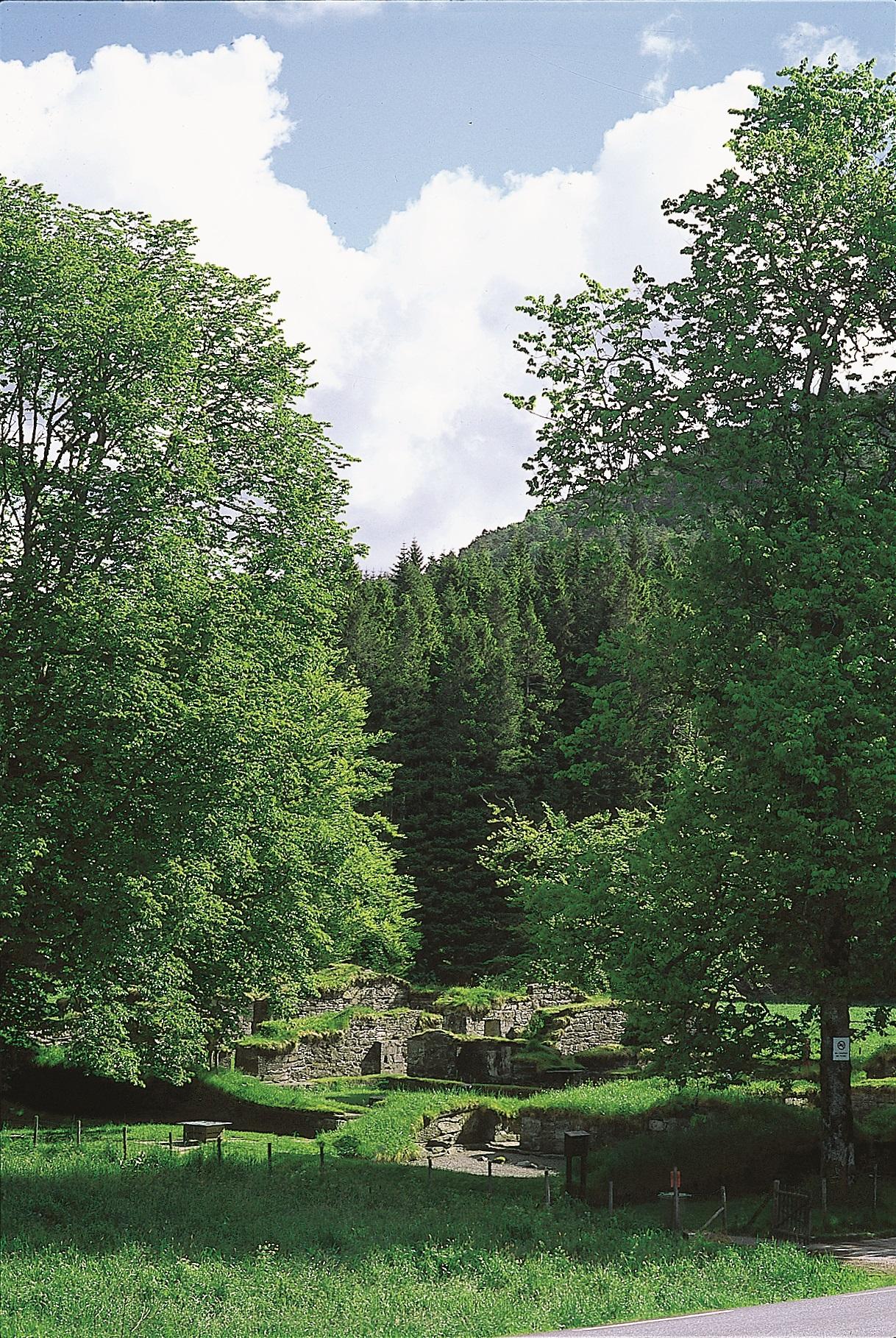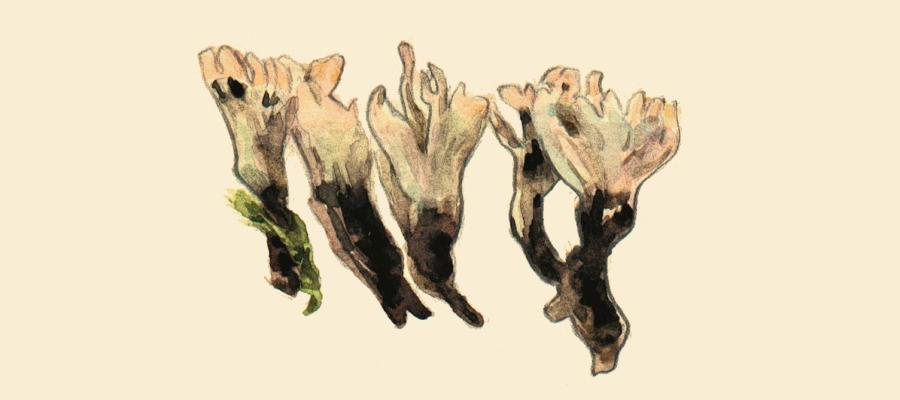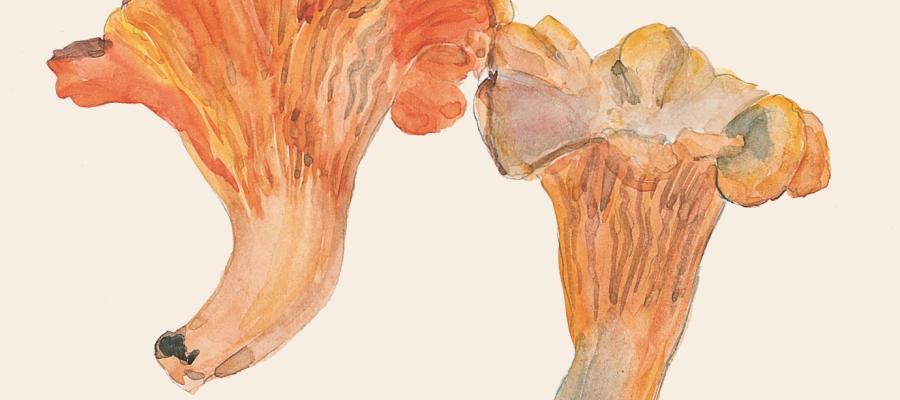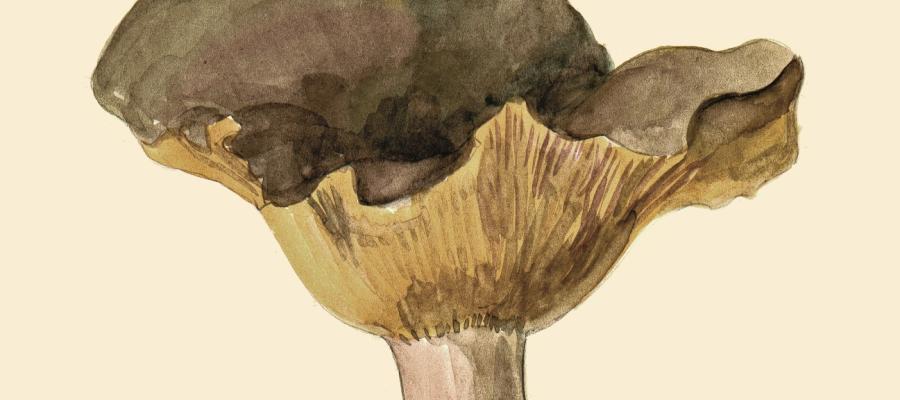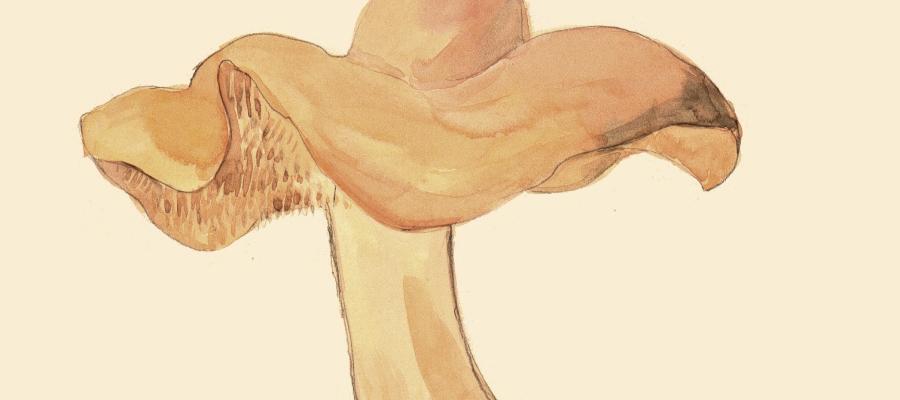Especially in the oldest planted spruce forests there are a lot of good edible mushrooms to be found, like chanterelle and funnel chanterelle, hydnum, boletus, gypsy mushrooms, false saffron milkcap and different species of waxcap and Russula. Not surprisingly, the most common mushroom in a planted larch forest is the larch bolete mushroom. Areas dominated by pine forest often have good edible mushrooms, like the Slippery Jack bolete mushroom, saffron milk cap and species of Russula, especially the copper brittlegill and one type that actually smells like fish, Russula favrei. In the autumn large amounts of Angel's wings mushrooms can be found growing on pine stumps.
Honey agaric is the name of a group of mushrooms, that are not edible. Honey agaric mushrooms grow over the entire area, on stumps and living trees, and in both fir and deciduous forests. They are parasites that can cause a lot of damage, especially in newly planted spruce forests.
Under birch trees of the deciduous forest one can find good edible mushrooms like orange birch bolete and brown birch bolete. Out in more open areas it is also possible to find champignon-species, especially the Agaricus button mushroom and the meadow mushroom. Meadow waxcap and scarlet waxcap also grow well here. In some years one can find several species of morels in the spring.
In the protected beech stand behind the monastery ruins there are usually a lot of slimy milkcap and geranium-scented Russula. These are not edible mushrooms. If we look carefully we can find small, black, rod-shaped extensions growing up from beech nuts that lie on the ground. These are beechmast candlesnuff, an ascomycete - the same class of mushroom that includes the truffles and moulds. It was first found in Norway twenty years ago, right here at Lysekloster.
